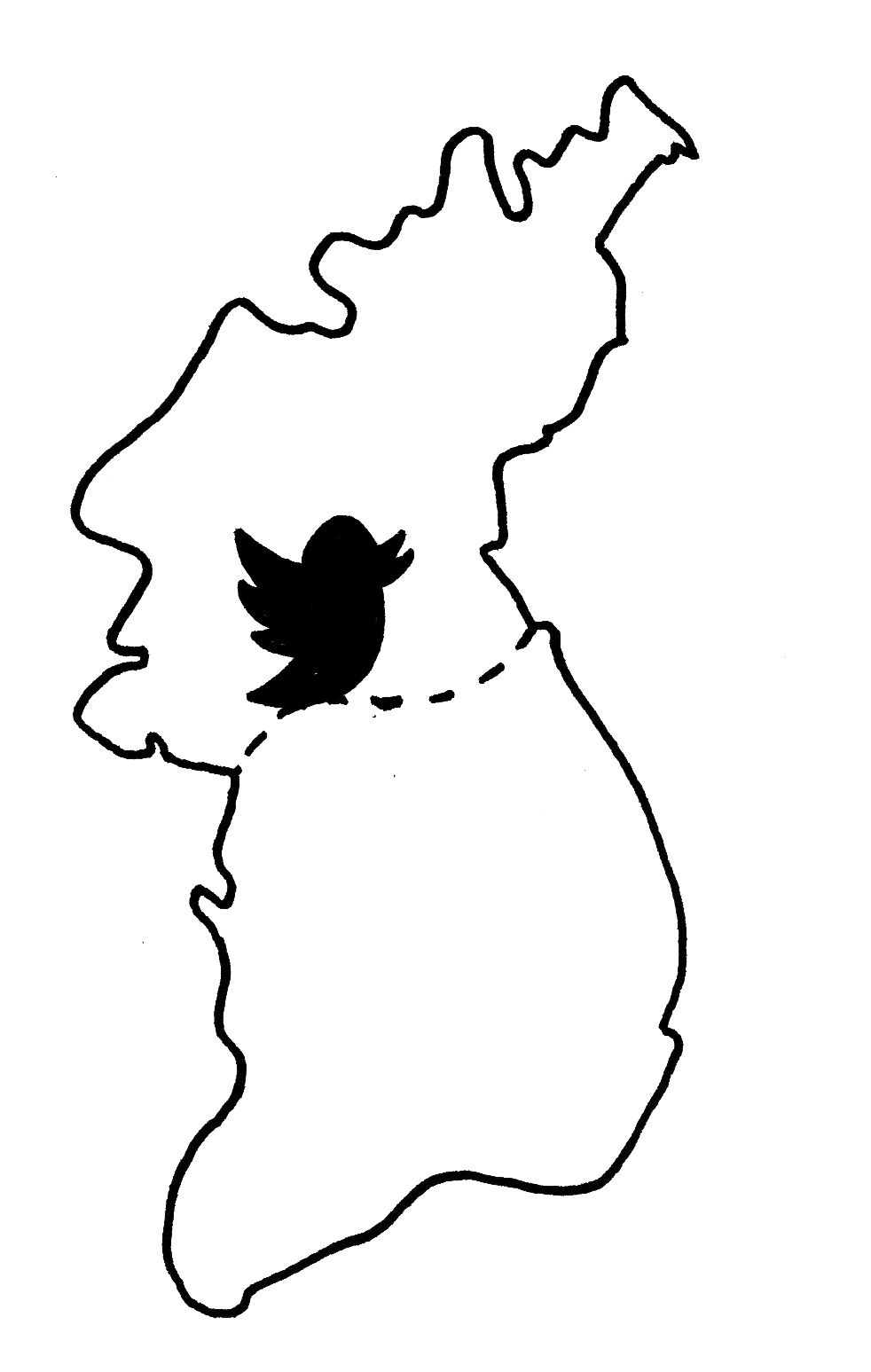How I learned to stop worrying and love the Rocket Man
February 15, 2019
 This
piece represents the opinion of the author
.
This
piece represents the opinion of the author
.
When President Trump tweeted “Little Rocket Man,” along with an image of Kim Jong-Un, the idea of donning a full Elton John outfit (any of them work) and bellowing “I’m a rocket man,” came to mind—not the image of an existential threat of nuclear fallout. The “fire and fury” approach to diplomacy between the two world leaders applies more to their war of words than to the actual war of nations insinuated. I am not concerned about any sort of nuclear warfare. There’s no need to be concerned; I’m positive about being positive. I have other things to stress about, like gun control, health care, rising homelessness numbers, climate change and whether there is a booth free in Moulton Dark Room. I am not worried about a nuclear missile measuring contest. Neither leader wishes to exercise and flex his finger’s ability to launch rockets capable of massive damage, instead choosing to flex his fingers, at least in Trump’s case, on the iPhone’s wonky keyboard.
With the “new year, new me” mentality adopted by every 20-something for 2019, time should be taken to reflect on the past year’s historic precedent for inter-Korean relations. The 2018 Olympics marked a major breaking of tensions between the two Koreas, as both North and South Korean athletes walked together under the Korean Unification flag—last seen during the 2006 Winter Olympics in Italy. The Koreas even fielded a joint-Korean women’s hockey team, a remarkable symbol of progress towards furthering the agenda of unity. Both leaders also presented a pro-unification agenda to work towards this year; Kim Jong-Un’s 2019 New Year’s Address anticipates further summits between the two leaders and President Moon Jae-in’s own South Korean popularity stems from his proactive approach to breaking their land’s division with the rebirth of the “Sunshine Policy,” a South Korean approach to softening tensions between the two nations. The third ever inter-Korean summit held in Pyongyang also lead to a heavy demilitarization effort to eliminate the harsh border lines separating the two nations—this included disarmament of mines, destruction of guard towers and removal of troop numbers on both borders.
So, any reasonable reader would say, what’s the deal? Where’s the unification? Why aren’t they just Korea? Why is Kim Jong-Un not in the NBA All-Star Celebrity game?
Well. As easy as it is for people to look to this past year as an inevitable sign of the possibility of a unified Korea, there continue to be a few hitches in their joint progress towards this goal. Namely, President Trump. While Trump will likely claim his work with Korea as a highlight of his time in office, his continued involvement only further aggravates tensions surrounding reducing nuclear proliferation. Interviews with the North Korean population show that, while they receive these negotiations and talks positively, they dislike the idea of Western influence butting into Korean affairs—specifically looking at and seeing President Moon as a puppet. These sentiments may derive from Kim Jong-Un’s New Year’s address, which pushes a pro-economic market plan and states his desire to continue negotiations with the South Korean government (while also stating that they would not be bullied by any bully from the United States). President Moon himself is a pro-unity advocate and ran on that as a campaign for election. His own future is what slightly deters me from remaining 100 percent optimistic.
President Moon’s approval ratings from December showed less than 50 percent of South Koreans supporting his administration. This declining popularity stems from a lack of substantive plans from the meetings with Kim Jong-Un, economic downturn in both Koreas and a lack of substantial political reform. These issues could all stem from his continued focus and effort on working with Kim Jong-Un—focusing entirely on the North Korea question. If one were to be soundly positive, Moon’s agency over the assurance of the Democratic party’s election of a candidate willing to continue pushing discussions would be needed. The 2020 National Assembly election is crucial for the Democratic party—it’s necessary for them to gain seats so that reforms could be passed by the next president elected in 2022. (South Korean presidents are allowed one term, five years long.) The importance of regaining the voter bases lost by Moon’s two years cannot be overstated. He needs to focus on effectively implementing political and social reforms as well as look into overhauling the current economic system, criticized for its poor implementation.
As a young, optimistic American voter, I can assuredly say that any efforts for diplomacy from the United States’ side can only improve in the future. As the field for 2020 presidential candidates widens, it will be important to make note—as a voter—of who stands where on this issue. It’s not something to be overlooked. Yes, it’s an existential fear for many people in the world—the prospect of being nuked—but that will only become real if things aren’t handled correctly in the future. To recap: Americans need to push for a competent, non-bullying negotiator who can close a deal; North Koreans need to continue to be pro-unification and need to understand that having more nukes doesn’t make you cooler; and the South Koreans need to focus domestically to ensure there will be a time to focus internationally.
Wilder Short is a member of the Class of 2022.


Comments
Before submitting a comment, please review our comment policy. Some key points from the policy: